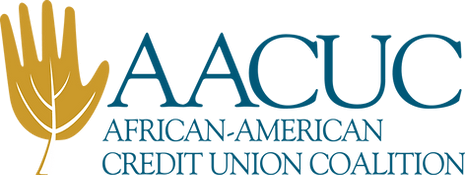Helping communities of color achieve financial wellness

Helping communities of color achieve financial wellness
While financial literacy is low among many U.S. adults, BIPOC households often feel that finances are a personal and private matter, and are habitually uncomfortable around conversations about money.[1] Our data confirms that many BIPOC communities regularly display an earned skepticism towards “relief” from for‐profit companies who have historically orchestrated predatory lending schemes directed at their communities. Some BIPOC communities may not differentiate between for-profit banking institutions and nonprofit counseling organizations.
Nevertheless, there is essential work to be done around helping BIPOC communities acquire access to the knowledge and resources required to overcome systemic barriers and change generational patterns around financial wellness. I believe that recognition and acknowledgement of systemic inequities is the first step towards overcoming the distrust of financial and housing counseling services that continues to permeate throughout BIPOC communities.
Through our Detroit Voices project and intentional outreach, we are creating programs and resources designed to help Detroit’s BIPOC households examine their entire financial picture, and chart a personalized plan toward financial wellness. Using the principles of Human Centered Design, we’ve been able to recognize and account for the varying entry points that many BIPOC individuals start from when navigating their finances, and how those differing entry points inform what kind of help they might need. For example, BIPOC households are more likely to have nontraditional income sources and more collection debt versus credit card debt. Because of these differences, BIPOC households need a tailored, empathy centered approach to debt management. It is with this lens that we have learned the BIPOC community is incredibly savvy and creative in making financial decisions but the tools they have access to, are often harmful.
Increased financial literacy can lead to improved paths towards financial wellness among the BIPOC community, even in low-income households, when we include the people in the process. Through our Detroit location, in the Durfee Innovation Society, by phone and through online tools like our 3-minute assessment and Learning Lab, GreenPath can help BIPOC households reassess how they are managing debt, how they approach spending, how they manage savings, and re-examine homeownership and generational wealth. While BIPOC Detroit homeowners face the greatest disparity in the nation when comparing the value of their homes versus other homeowners in the region, we at GreenPath encourage individuals to see that a home is not only a residence, but also a valuable asset, and a path towards financial freedom in both the short and long term.
With all this in mind, as you dive into your mission and seek ways to effectively serve the Black and Brown communities might I offer a few suggestions:
- Spend time in the community first, and form relationships. Avoid the patronization of these communities in high profile media campaigns, but instead show up regularly, as a part of the community with the intention to listen and collaborate rather than sell a solution. Connect emotionally and relationally, and work to establish TRUST first and foremost.
- Spend time with the community in thoughtful curiosity. Ask questions, normalize money conversations in a less structured way.
- Each community will have differences, be they culturally, systemically or locationally. Recognizing this, we mustn’t assume that specific products and services will have equal outcomes regardless of the community. Understanding and leveraging the uniqueness of these communities will help us optimize impact with solutions and outcomes.
- Give yourself grace. Recognize that the road to rebuilding trust after more than a century of systemic exclusion will likely be a long, slow road. Being present in the communities you serve is the first step to building trust. It is my sincere hope that credit unions continue to work toward rebuilding systems that have been exclusionary to so many. Together we will.
Original article available here.
Additional Info
Source : CUInsight.com
Related Links : https://www.cuinsight.com/helping-communities-of-color-achieve-financial-wellness/
